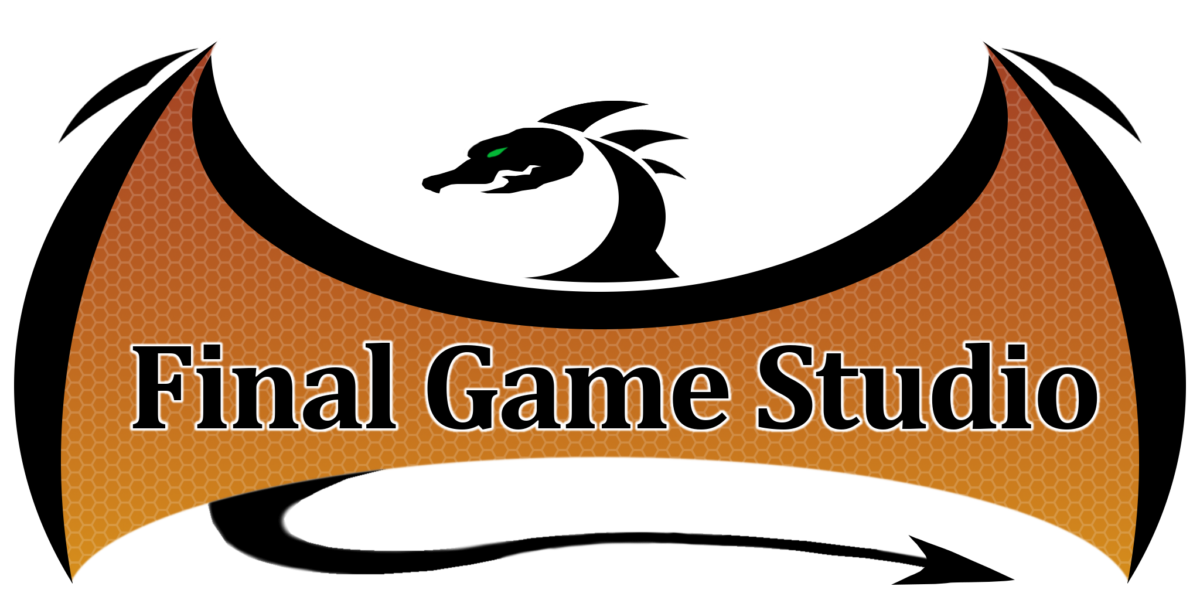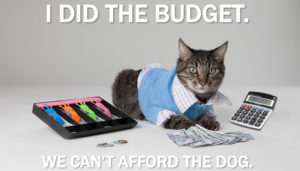Launching a new mobile game is cheap these days, right? I mean, the common wisdom is that anyone can make and release a mobile game for practically nothing – just a small bit of time and maybe some hard work and then you sit back and wait for your ‘free money’ to potentially roll in. I assume this is part of the reason why, once people hear I make apps, they keep telling me about their new (and impractical) ‘awesome app ideas’…
But what does it really cost? And what does it cost if you want to do it professionally – create a company and treat it as the first game in an eventual portfolio?

For me, the answer was €1,319 – and it could be a lot more for you. My company’s first game (AuroraBound – Pattern Puzzles) launches in 2 weeks on 3 platforms and 4 app stores. I did the design, coding, art, audio and marketing myself – only outsourcing the localisation, yet the various costs still added up.
Forming a Company
The first cost for me was setting up a new company I could release games under (Final Game Studio Limited). You can technically avoid this if you want, as I think all of the major app stores allow you to sell apps under your own name, but there were a couple of reasons I decided to go down this route.
Limited Liability
I’m offering a product for sale worldwide and while I don’t anticipate any issues, there is always the slim chance someone will decide to try and sue me over some obscure patent, copyright, trademark or some other reasons. That’s just the reality of the world at the moment, and I’ll sleep better at night knowing I’m somewhat protected since they can only sue the company and not me personally.
Tax Advantages
As an Irish citizen, there were a LOT of tax benefits to setting up a company to release my games. Since my short to medium term goal is just for my games to pay for their own costs (less my time), any money they earn can stay in the company account and only be subject to corporation tax (12.5%, and there are exceptions even to that for the first few years of a new business). As I mentioned in my last post, I work full time at another game company, so if I were to release the games under my own name, all income would be taxed on top of my existing income (at over 40%) and cause me additional headaches since I would need to register as both employed and self employed.
Professionalism
I think its just looks a bit better. I would rather have customers seeing a company name at the top of my products’ store pages than my own. I think it also adds a bit of credibility when contacting press or platform holders for featuring.
The Cost
The final deciding factor for me was that it was extremely cheap (and relatively easy) to set up a new company as an Irish citizen. It cost me €50 to incorporate the new company, and another €20 to register a trading name so I could drop the ‘Limited’ from the end of the company name on stores (it just looks better). I spent about 10-15 hours reading over all the relevant documentation and laws and then I was good to go. There is a bit of ongoing paperwork (doing accounts for example), but I didn’t need a lawyer or accountant to get started and as long as the company’s yearly revenues stays below a certain amount a year, I won’t need to incur any major costs like audits and don’t need to register for vat straight away. This process could cost you a lot more depending on where you are living however.
There were a few other costs related to the company though. I needed a company website for things like press kits (plus this blog and some cat photos). I also got www.aurorabound.com to act as a landing page for the game – I’m not sure if that was strictly necessary, but I got the url for €1 for the first year. The two urls, plus hosting for a year €90. I decided to make the website myself, because I wanted to save some money. I also decided not to just use WordPress at first, because I am stubborn, grouchy engineer at heart (pro tip – just use WordPress, it will be faster). I needed a company email address, so I got Google G Suite for €40 a year. You need support email addresses for some of the app stores, and it looks a bit more professional to not be emailing press from ‘superc00l_yeah@aol.com’ (that’s an example, but my spam email from when I was 14 isn’t much better…)
App Stores Registration Fees
One cost that isn’t optional is the various app store ‘registration costs’. I am releasing on the Apple App Store, GooglePlay, Amazon, Windows Store. The Apple App Store is €99, GooglePlay is €24, Windows is €93 and Amazon is free. The only hidden catch here is that the Apple App Store developer license is recurring , so its actually €99 a year (but that’s next years problem…) So that’s €216 to release on all 4 stores.
The Hardware
You need build machines and mobile devices to test with. I actually had access to everything I needed already, but my circumstances are a bit unique, so chances are you don’t… I do most of my development on my windows gaming PC, but I also have a 27′ iMac I got years ago for some ios Development at home. You need a mac to build and release on the Apple App Store and you need a Windows 10 PC to build and release on the Windows Store (and because Unity can be a bit of a pain to use on the mac). Since even a cheap second-hand mac can set you back a few hundred Euro, this could be a major expense for a few people.
Test devices are trickier – my main test devices are a cheap kindle fire and an old nexus 7 for android and my current iPhone 5s and old iPhone 4 for iOS. (I always prefer to test on older, slower devices – I can get a rough idea of how things look on my dev machines, but for performance you need to test on device). Those 4 devices really aren’t enough for proper testing however – you’ll need to test on few more android devices from different manufacturers (bare minimum would be a kindle, a nexus and a htc). You also want to test on different iOS devices – especially the newest iPad Pro to see what your game looks like in full retina resolution. Its pretty common to find rare bugs/inconsistencies that crop up across the different CPU/GPUs of the iOS device family. You also want to test on a few different versions of Android and iOS….
Luckily for me, I have access to all of these devices at my day job – and they have been very cool about me testing on them outside of my work hours. Without this, I definitely would have had to purchase at least a few of them – and the newest devices don’t come cheap.
The Game
So what about making the game itself? How much can it cost when you do ‘everything’ yourself?
First off, while I’m not counting my time as an explicit cost – I am aware of it. Anyone who tells you it cost them ‘nothing’ to make a game is lying to you. I’ll work out the exact times later for a retrospective, but I have probably spent about 400 – 500 hours working on the game in one form or another. That’s maybe 3 months of full time work, so the opportunity cost of that is theoretically pretty high. For illustrative purposes, I’m a C++ software Engineer when not making games and the average US salary for that is $115,000 – so $~28,000 for 3 months ). Now I’m doing all of this in my spare time, so I’m not missing out on any income, but there is still a cost – as of writing this I still haven’t started Zelda! Let alone the various games that came out over the Holiday season…. Oh, yeah – and missed time with loved ones, that’s also important…. (maybe not Zelda important, but still important!)
In terms of production costs, I did all of the design, programming, art, audio and marketing (such as there was) myself – for better or worse. I actually enjoyed switching between the different disciplines more that I expected, but I was never quite happy with how the audio turned out. There is obviously going to be a trade off in terms of quality and scope when wearing all the hats yourself. While I am confident enough in my design and engineering skills for example, I work with some really talented artists and my limitations in the field are made immediately obvious when I try to draw something to illustrate a point (my stick figures put other programmer art to shame…). This heavily effected the design of the game, as I adopted an art style I was confident I could pull off.
Localization was something I couldn’t do myself though (and if you are reading this and thinking to yourself ‘Google Translate’… No. Just No.). I wanted to launch worldwide and decided to localize in 14 languages – most of the major ones and a few that I suspect the Apple featuring team have a soft spot for. Localizing obviously broadens your potential markets, and not localizing reduces your already infinitesimally small chance at getting featuring from the major store-fronts. (As a side note, I really wanted to localize into Arabic, but Unity doesn’t support it by default – get on that Unity!)
I knew localization was going to cost a lot, so I worked to keep the number of words as low as possible and chose re-usable phrases where I could – some of those translations are going to be used in future games to help reduce costs! In total, I needed 175 words translated. As a side note, I strongly recommend you have all of your store pages filled out before you get things translated, there are a lot of small things you can miss like minimum and maximum string lengths or descriptions for IAPs. I went with keywords for the localization as they had localized apps I had worked on before – they weren’t the cheapest option, but their rates were reasonable, they were nice to work with and had a great turn around time. In total, localization set me back €440 including vat.
I also purchased a Unity License… which I am kind of on the fence about. My main reasons for getting it were to get access to an android profiler (which I probably could have done without for my game since I am pretty good at designing efficient systems at this point and I purposely tried kept it pretty simple) and to get rid of the basic splash screen (which is probably just industry snobbery on my part, since I doubt most casual users will care). I probably could have put off upgrading to their paid license tier a bit longer, but at least I got it towards the end of the project – the Unity licence set me back €464 (which is another recurring yearly cost). Thankfully all of the other software I use is either open source or free for a company as small as mine (Audacity, GIMP, etc)
What’s Left?
Surely that’s it right? Well, for me it is. But some of you might have noticed a distinct lack of market spend…. I’m not going to pay for ‘expedited reviews’ on principle, but what about advertising? For this game, I don’t think its worth it – its a fun game, but the monetisation is basic and it doesn’t have the kind of stickiness a modern free to play game needs to succeed. I needed to stick to free marketing for this release – I have sent out promo codes to various outlets and YouTubers, contacted the stores in the hope of promotion, and will send out a few press releases on launch day (Oh, and I wrote this, this blog counts as marketing I suppose – If you are reading this and are on the Apple, GooglePlay or Amazon editorial teams, you should totally feature my game).
Summary:
App Store Dev Licence : €99 (per year)
GooglePlay Dev Licence : €24
Windows Dev Licence : €92
Amazon Dev Licence : 0
Unity ‘Plus’ Licence : €464 (per year)
Company Registration : €50
Company Trading Name : €20
G Suite Company Email : €40 (per year)
Website Hosting and URL : €90 (per year)
Localisation : €440
Total Cost : €1319
I am in the enviable position of not needing this game to turn a profit since I made it in my spare time. I hope people download it, play it and like it, but to pay back its ~1,300 cost I would need a lot of downloads once you factor in conversion rates (probably 100,000+). Luckily, I worked out the majority of this before I started and knew what I was getting into – and I really enjoyed making it. Some of those costs won’t come up again, and depending on how many games I make a year, some of them can be spread out. The next game should cost me less, as will the ones after that, and I do plan to keep making them. Hopefully, if you decide to make your own games, this post will help you go into it with your eyes open.
Oh, and in the mean time you can follow me on twitter here: @finalgamestudio (see? more free marketing)



